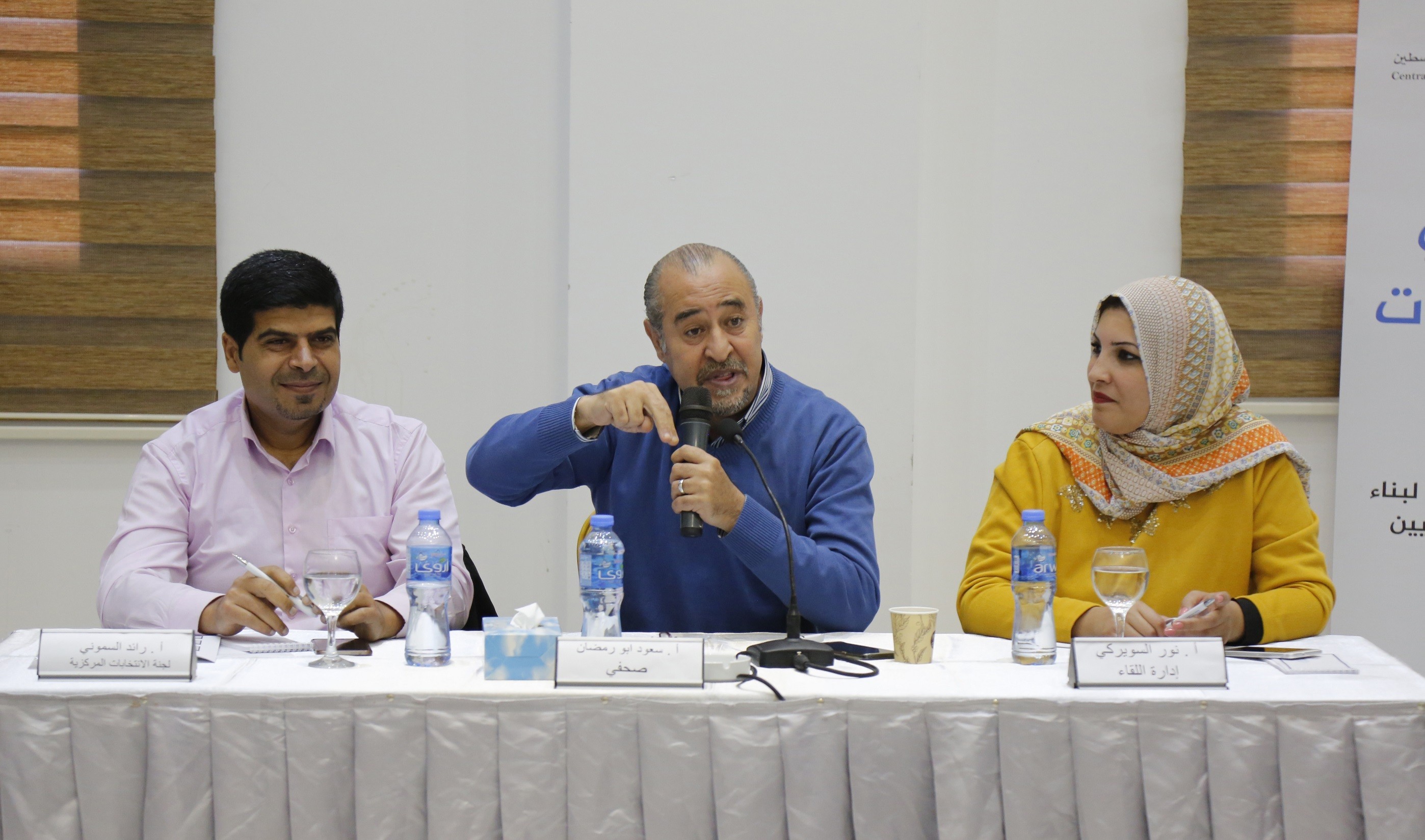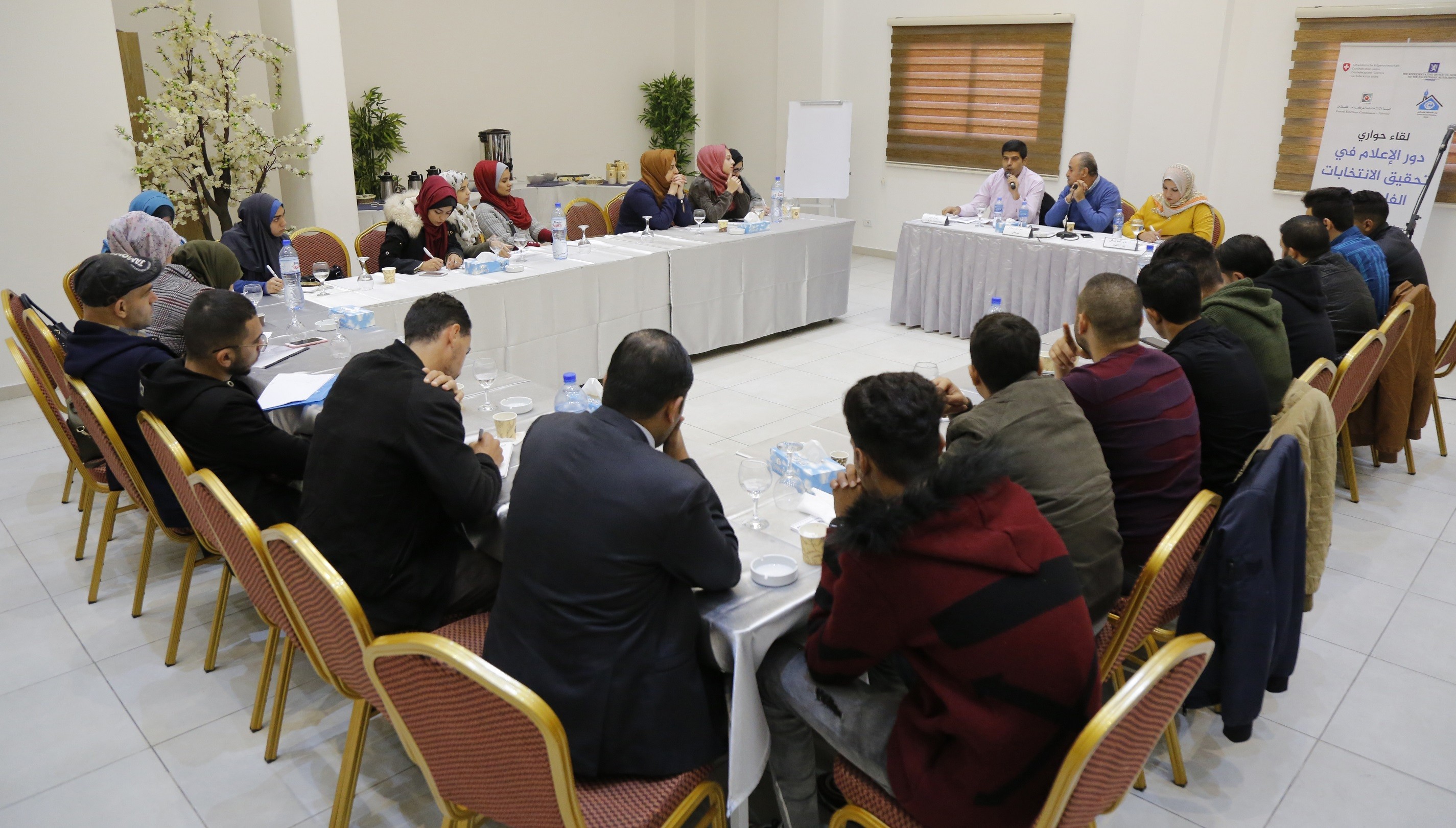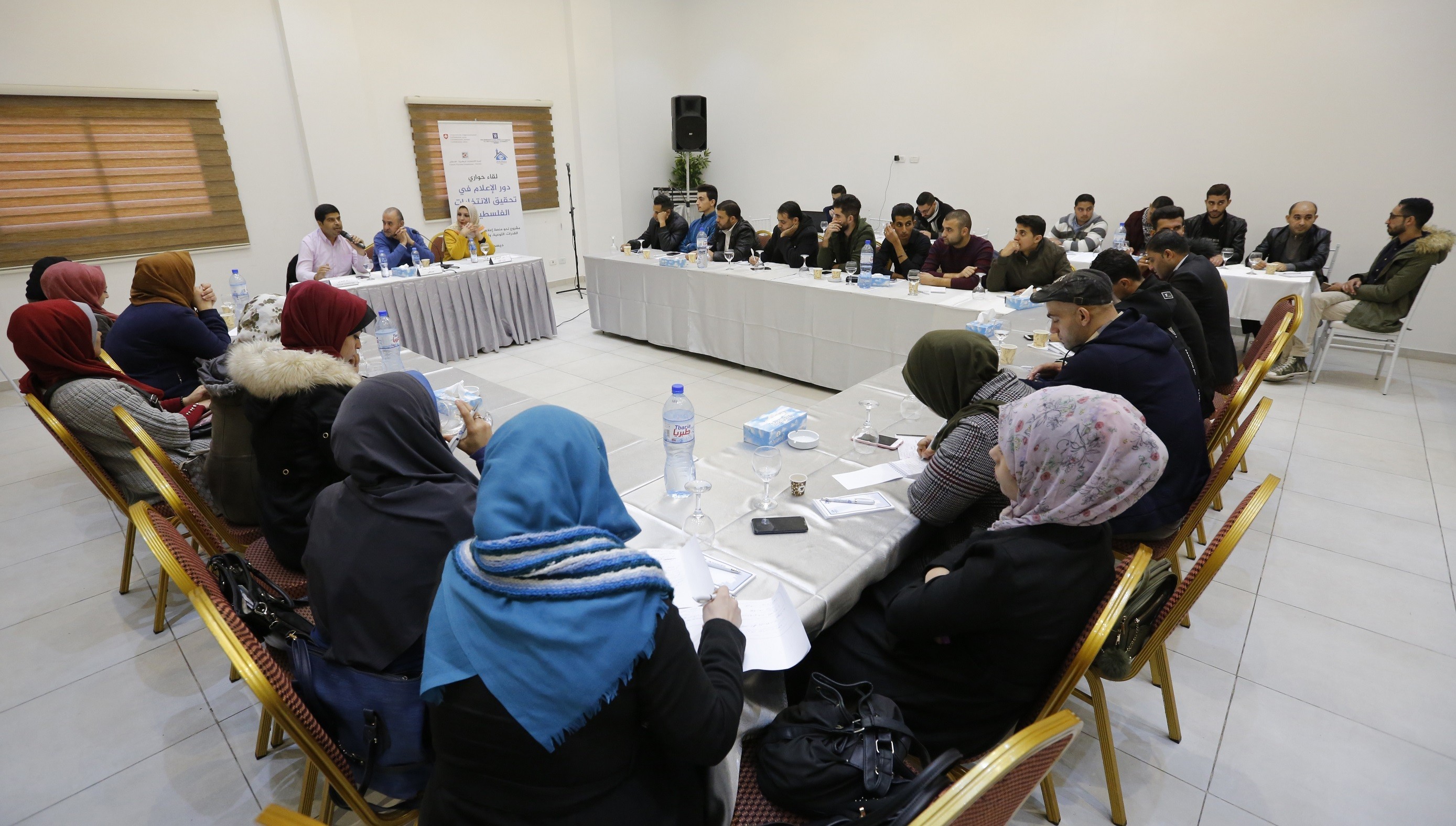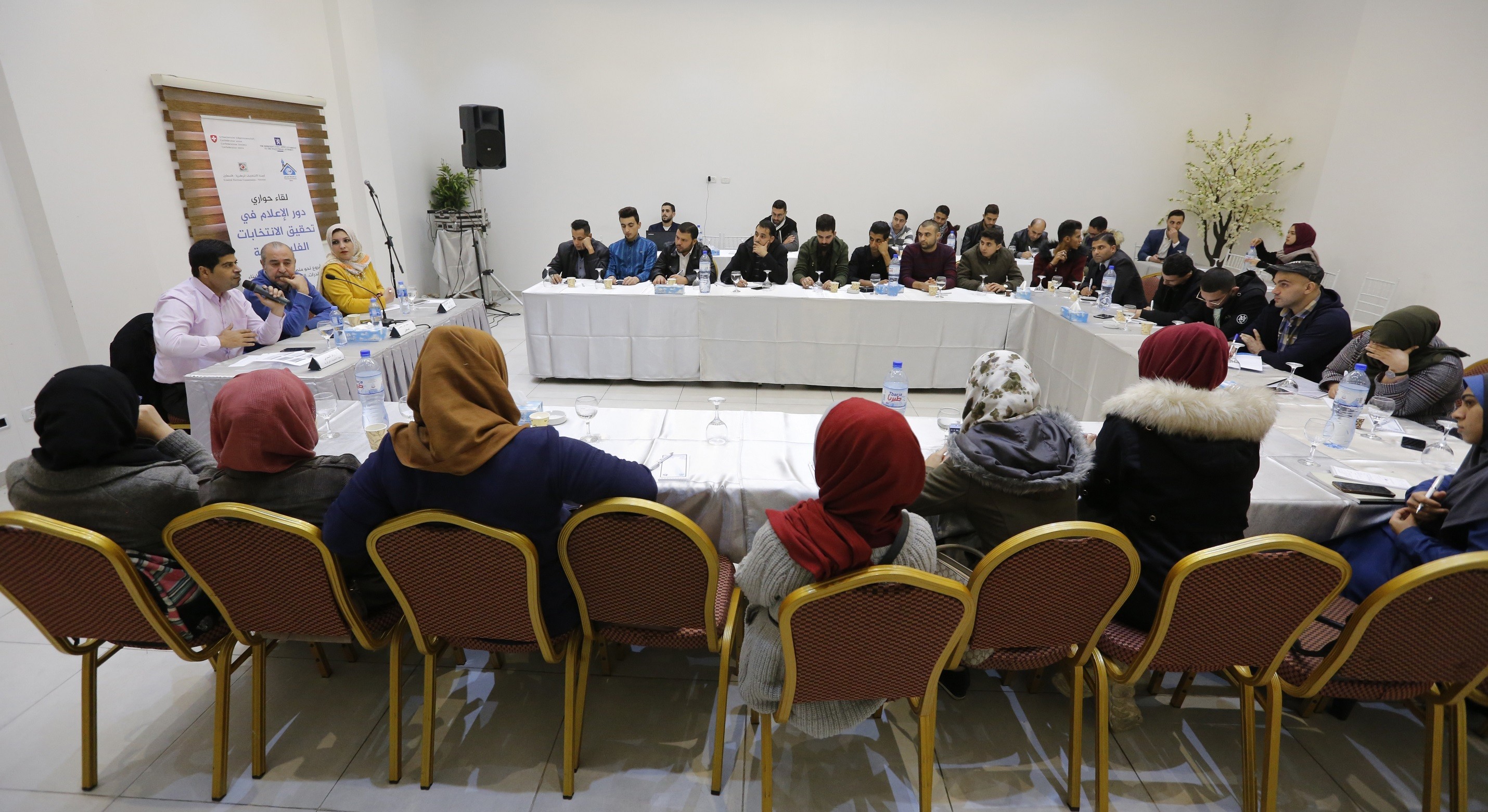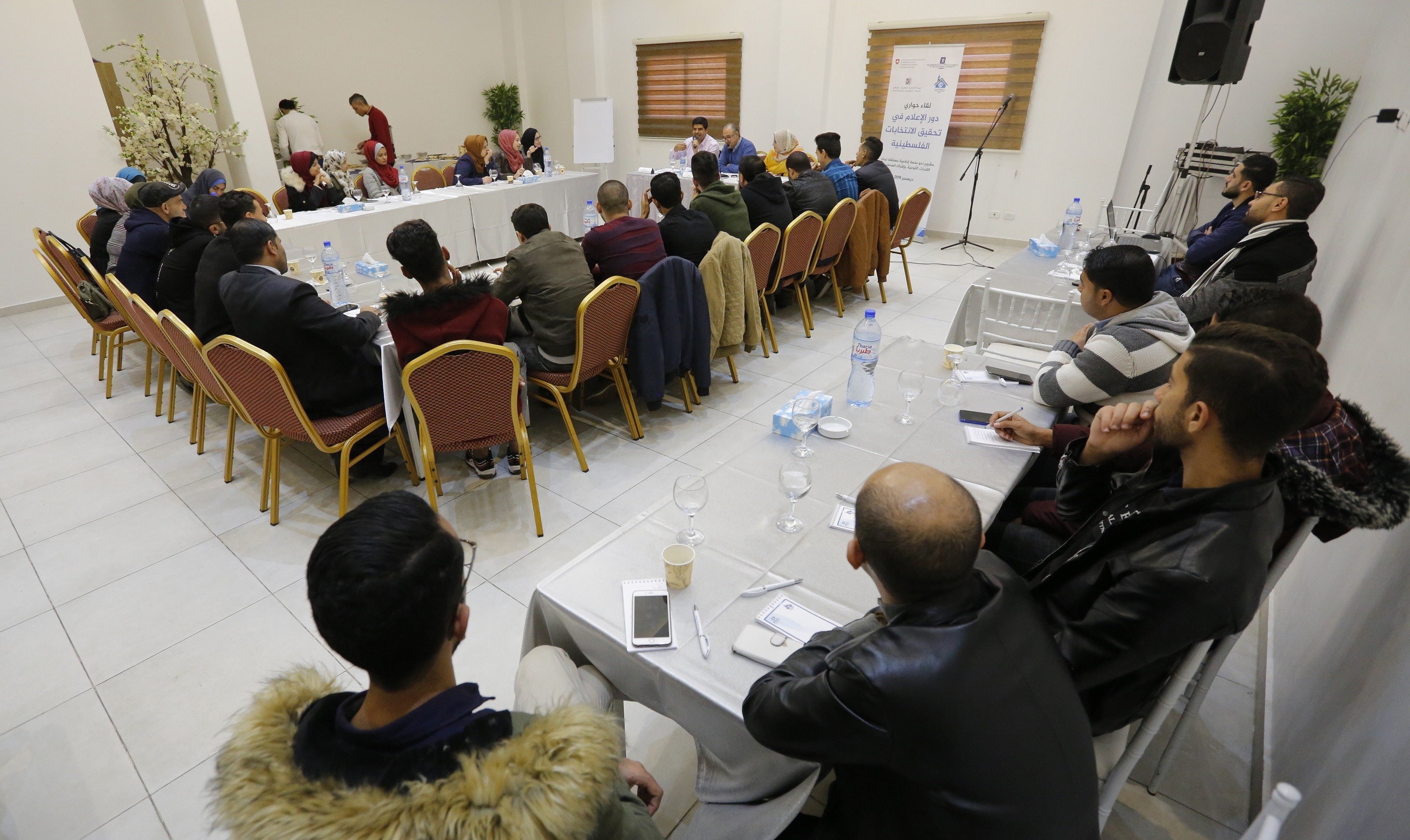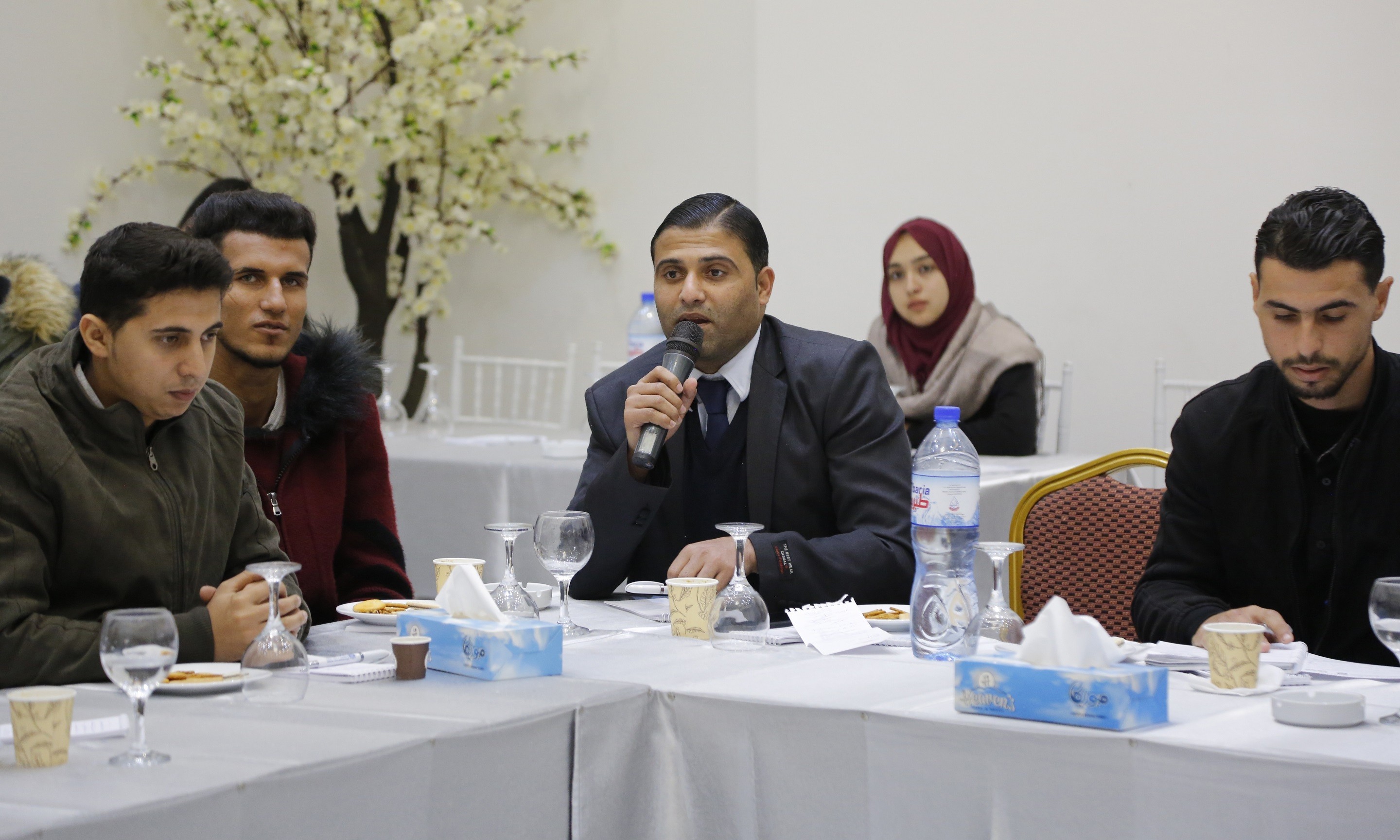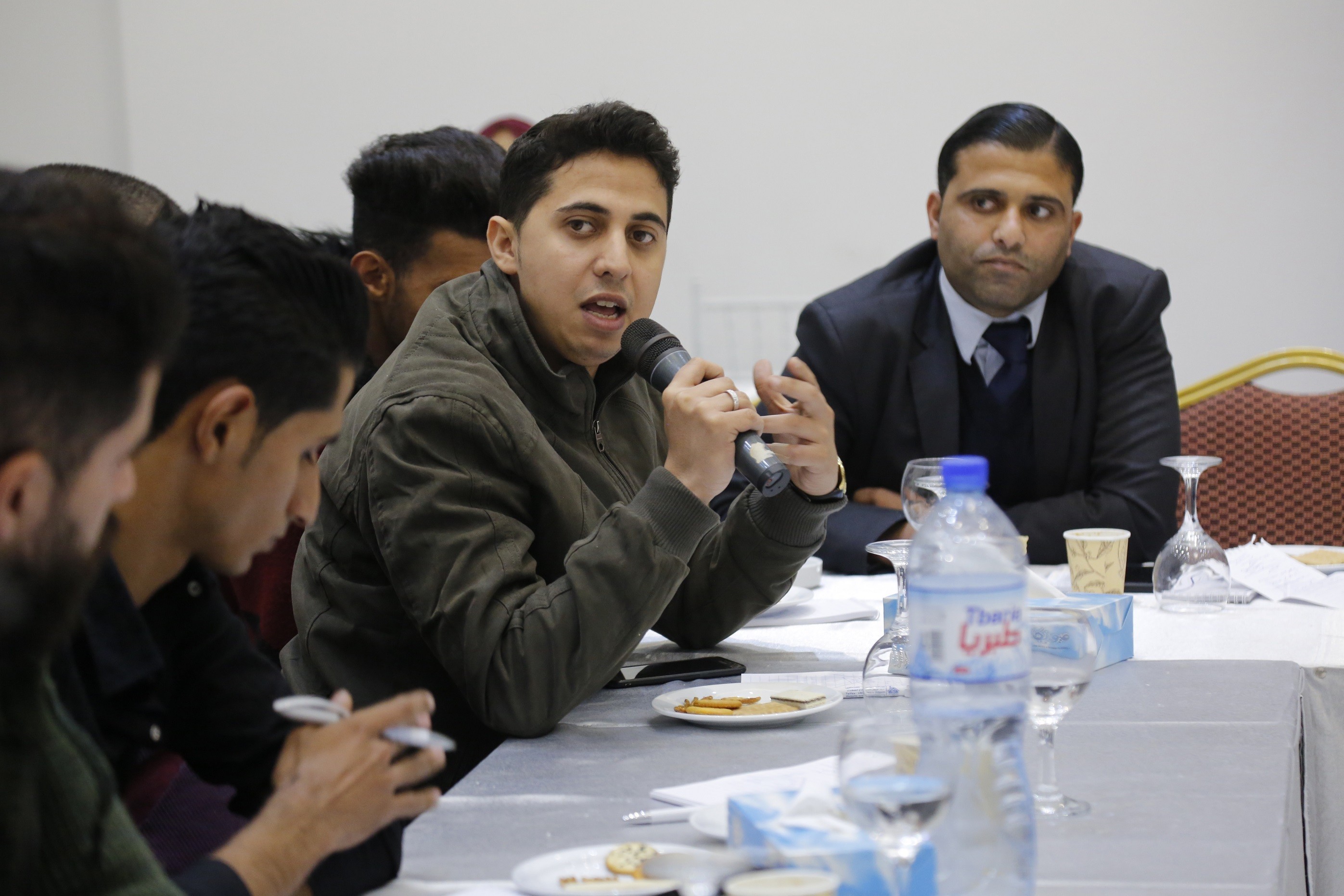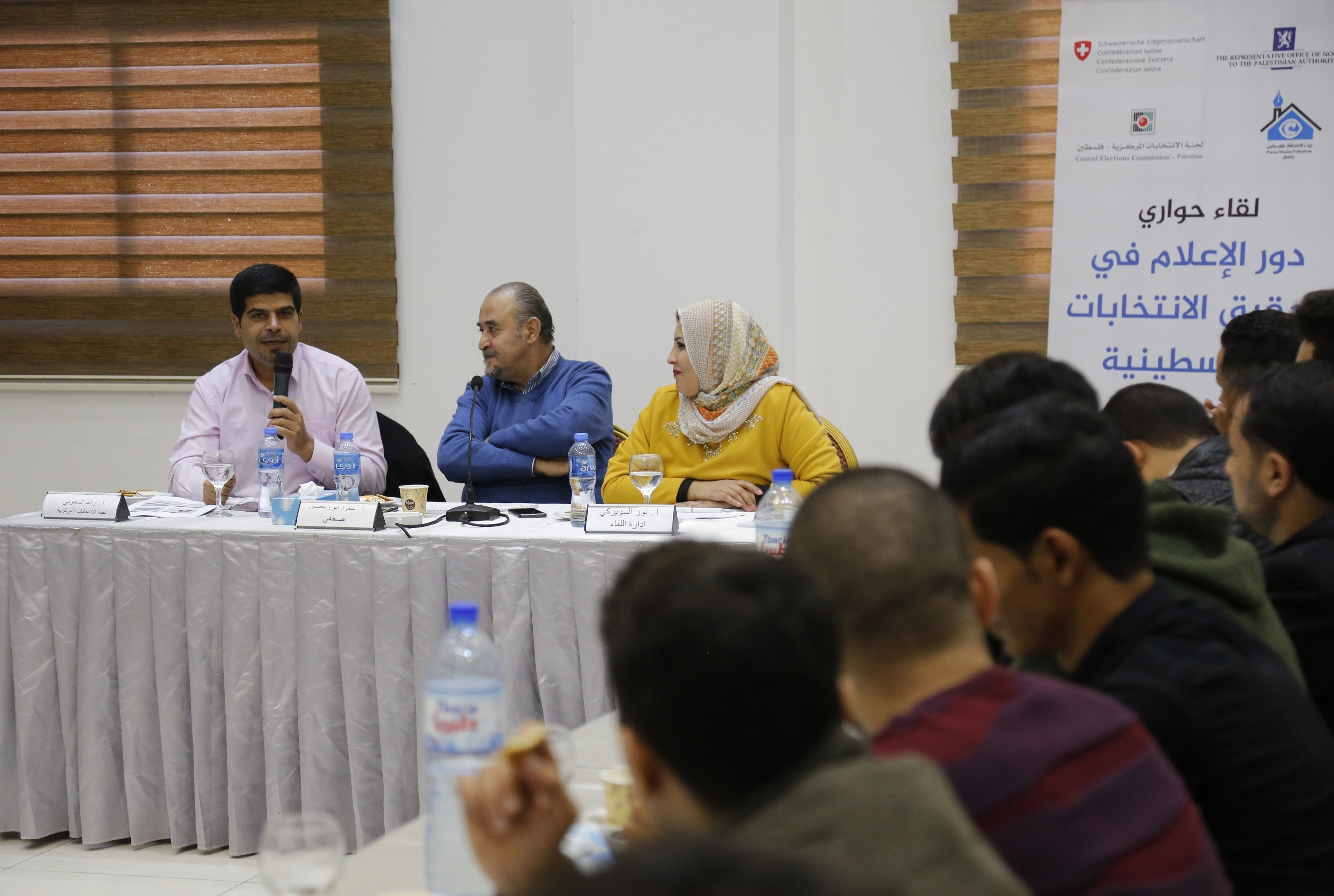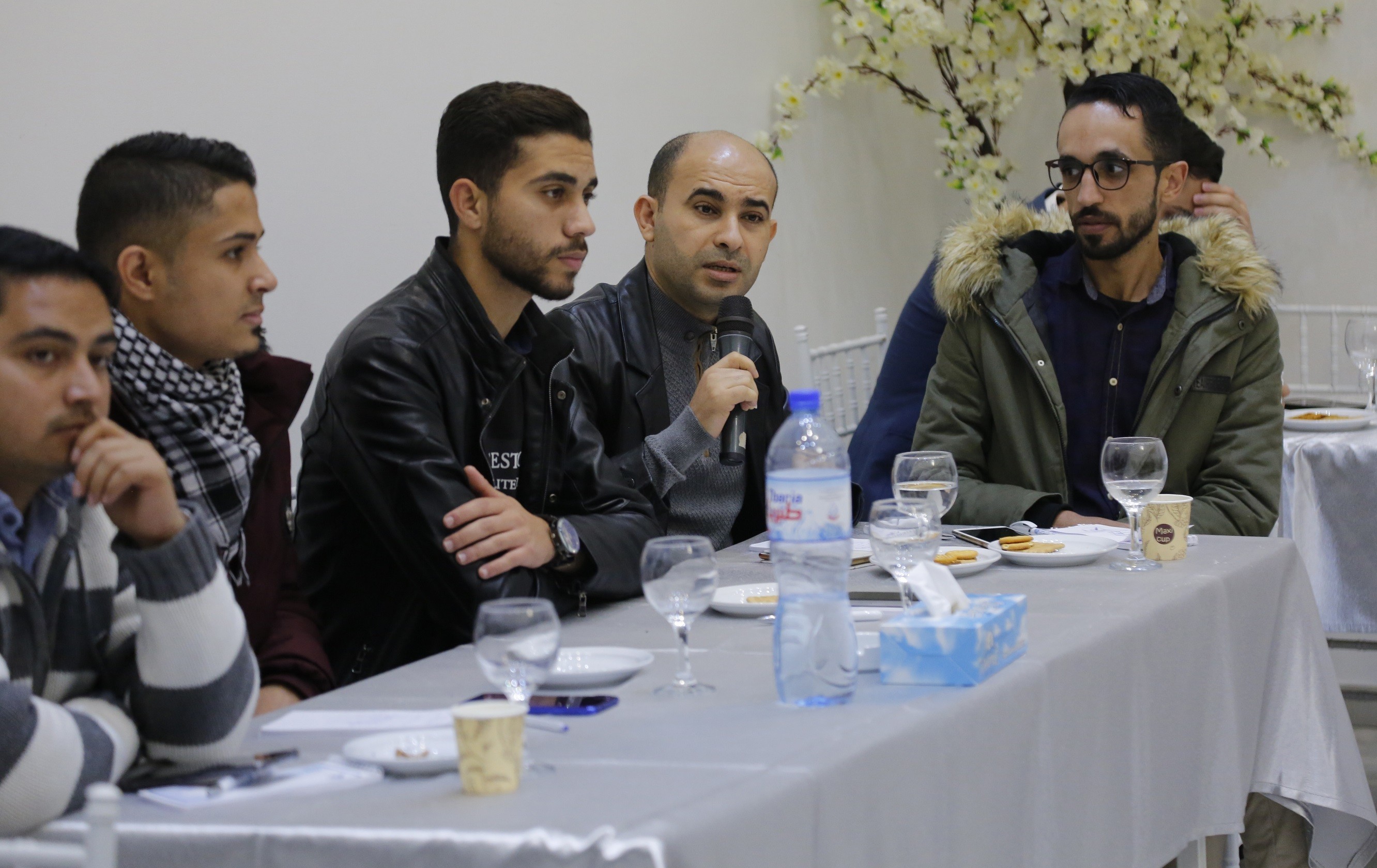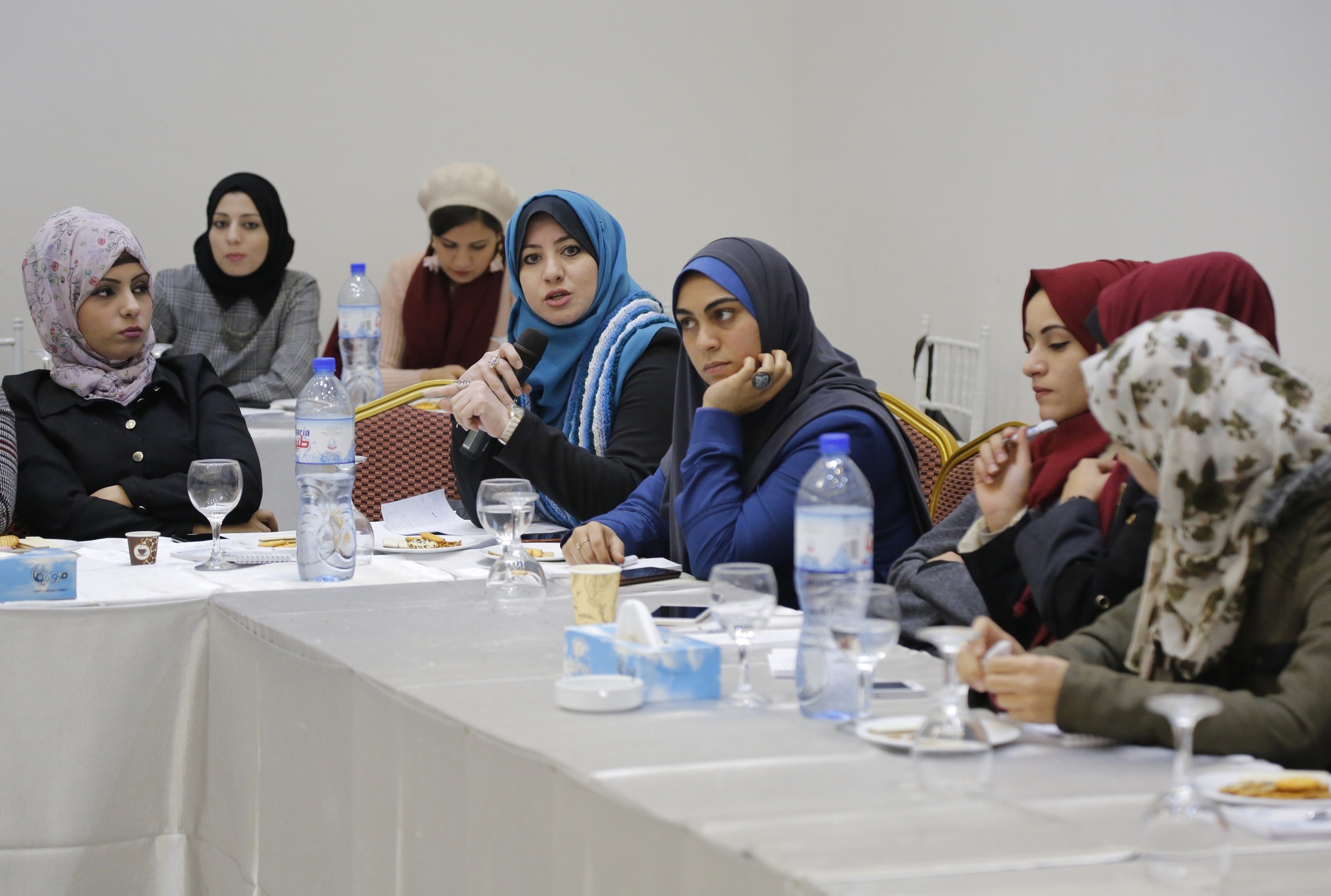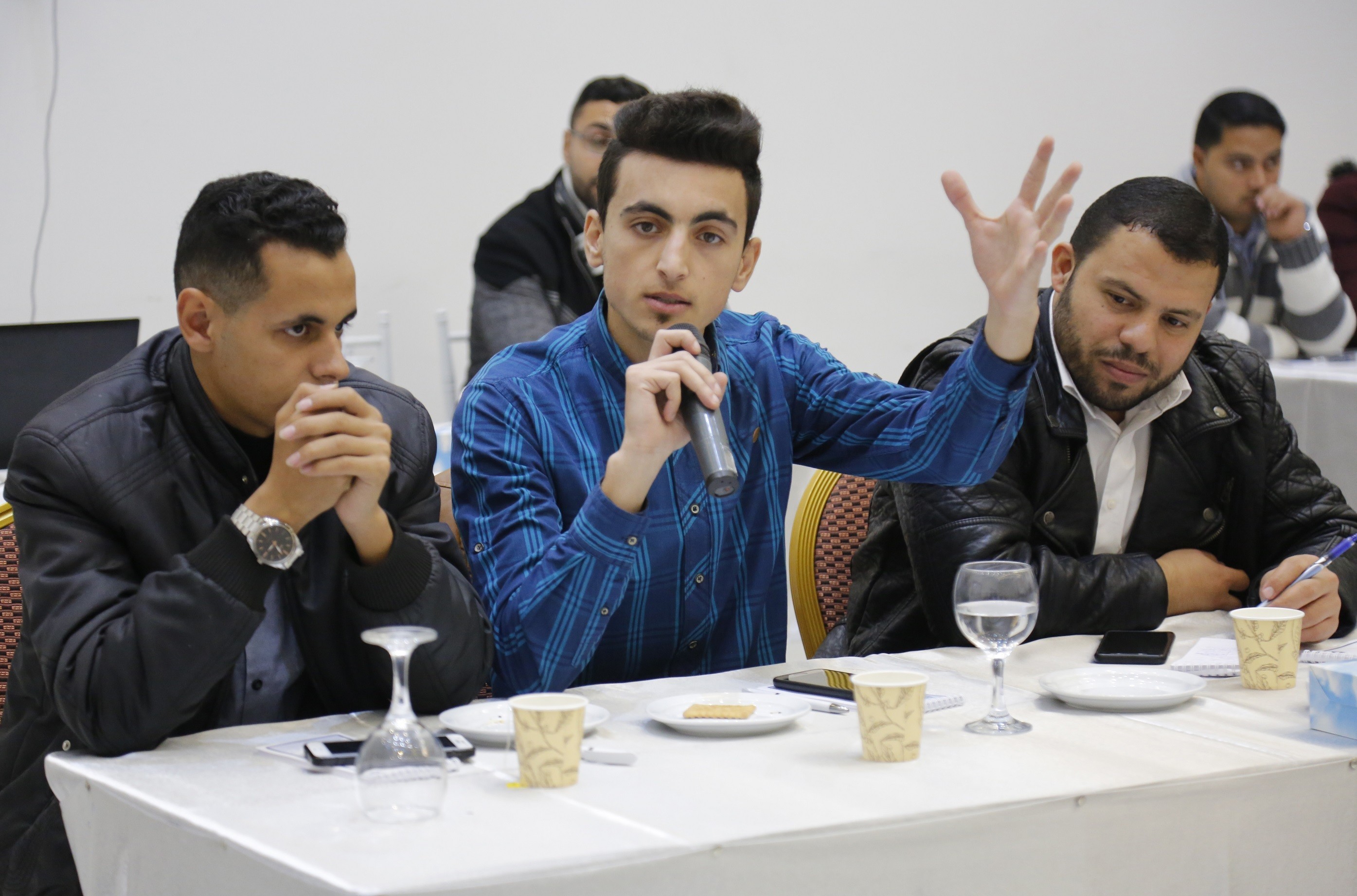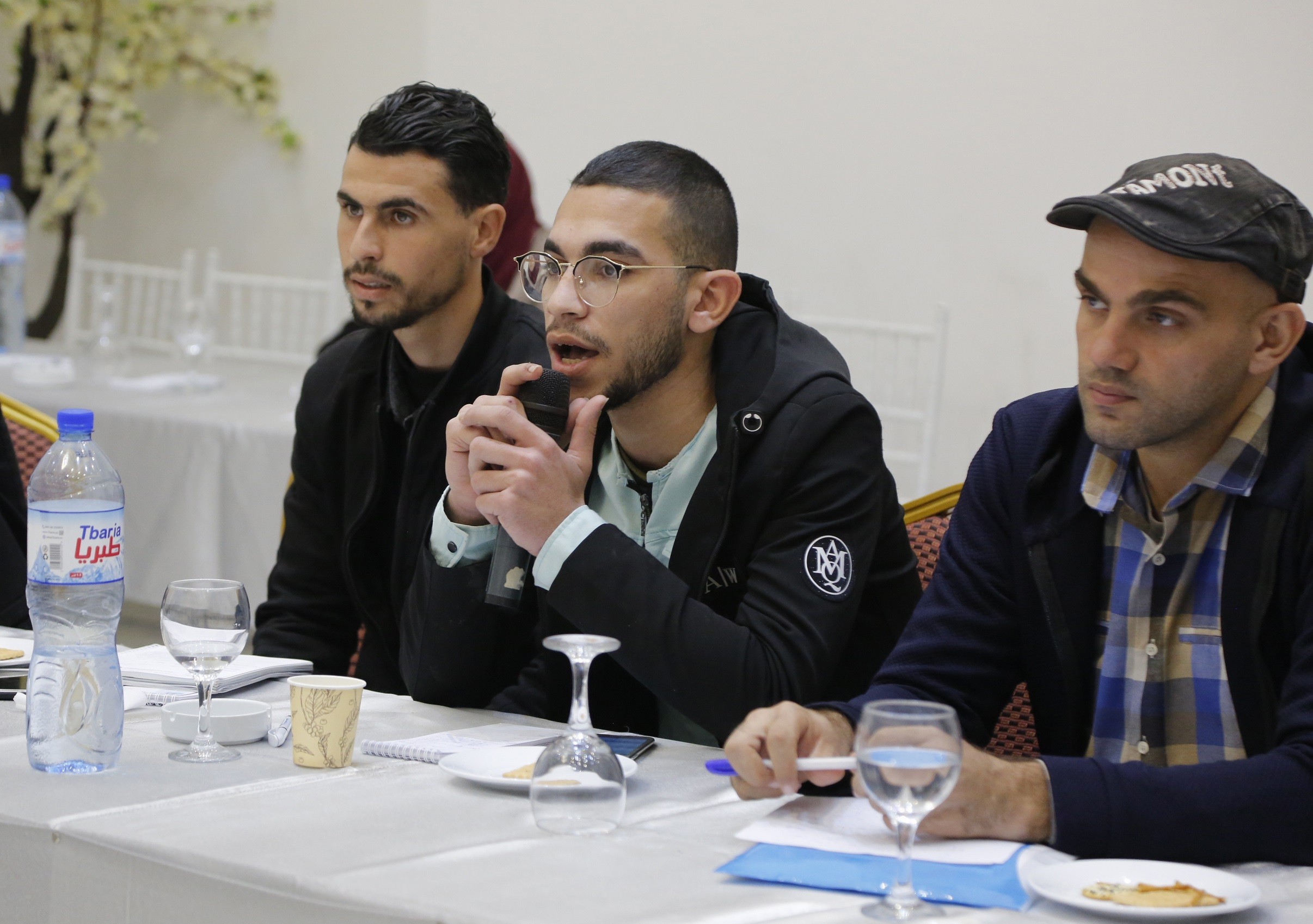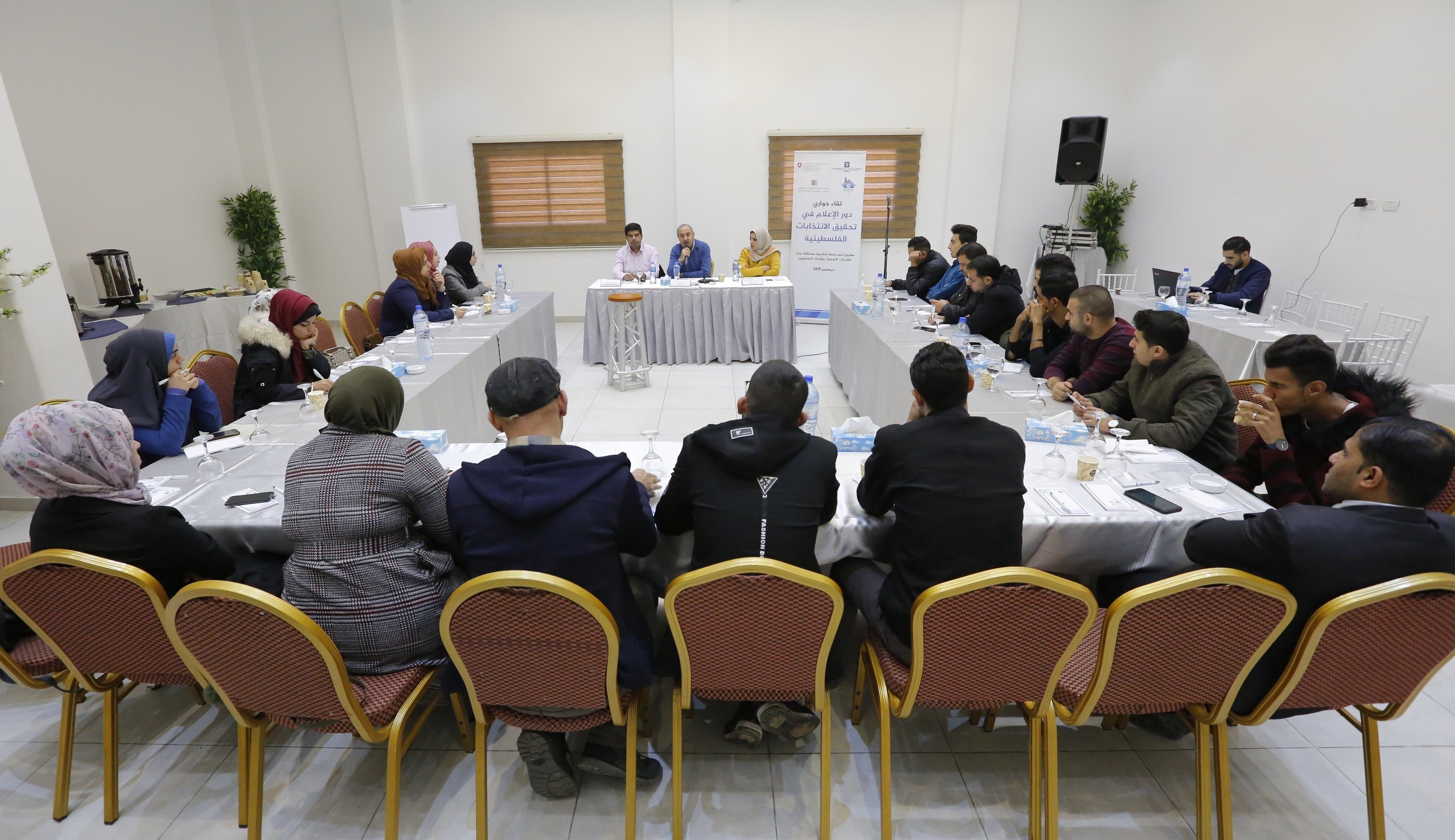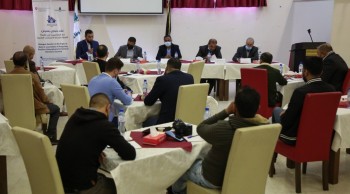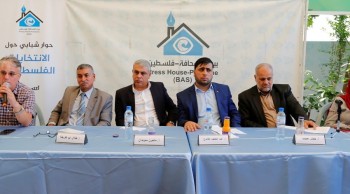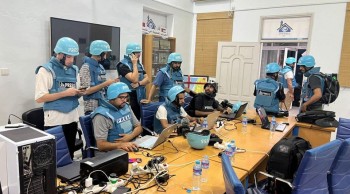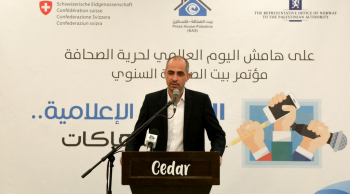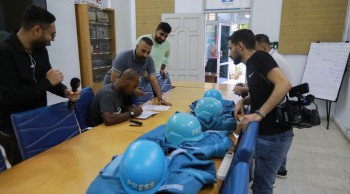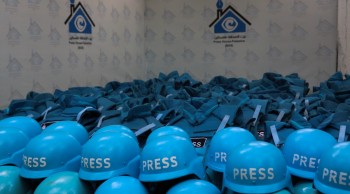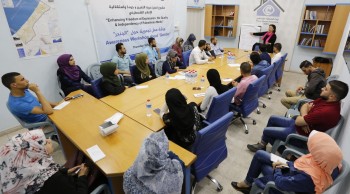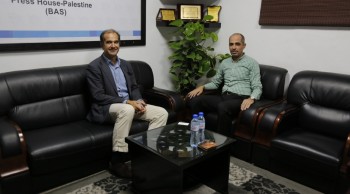On Monday, 9th of Dec.2019, the Press House - Palestine, in cooperation with the Palestinian Central Elections Committee, organized a dialogue meeting, entitled "The Role of Media in Achieving Palestinian Elections", by hosting a number of journalists for both gender working in various media foundations in the Gaza Strip.
The Dialogue meeting, which was opened by the Journalist Nour Al-Swairki, comes as part of the project " Towards an Independent Media Platform for Capacity building, Awareness, and Involvement of Journalists”, by talking about the Palestinian elections that are expected to be held soon.
The journalist Saud Abu Ramadan recounted the date of the electoral process in Palestine, and its holding for the first time in the West Bank, Gaza Strip and Jerusalem, based on the Oslo agreement.
Abu Ramadan touched on the professional aspect and the political vision to cover the Palestinian elections, pointing to the need for the media to play a positive role in its coverage, as media coverage needs accuracy, objectivity and impartiality, and that the sources should be reliable and well-known.
He stressed the necessity of holding training courses to teach the journalists how to cover the elections, pointing out that there are methods and rules that journalists must follow to cover the elections in terms of professionalism.
He also stressed that the Israeli side bears the greatest responsibility in impeding the holding of the elections, considering that it is the main and major obstacle to that process, especially when the Palestinian people demand that elections be held in East Jerusalem.
In turn, Raed Al-Samouni from the Palestinian Elections Committee mentioned the determinants that have to do with the implementation of the cooperation between the commission and the media sector, and about the foundations on which this relationship should be built, pointing out that there are a number of partners with the committee, the most important of which is the “Media”.
Al-Samouni explained that the media should be registered with the Election Commission, "Not as an adoption but only to organize its work, and to enable its employees to monitor the electoral process," pointing to the commission's work during the recent period on projects for the media sector and holding a number of courses for journalists.
He noted that the committee issues the norms of behavior for media professionals after adopting the means in which it works, and issuing cards authorizing them to be present in all places where the committee operates, whether at the registration or polling centers.
Al-Samouni stressed that the electoral process stages are approximately 7, indicating the need for media to give attention to all of these stages from its beginning to end vigorously such as the polling and results day, in addition to the need for the media to cover and realize it in all its details, and to show the positive aspects.
With regard to the oversight of the electoral process, Al-Samouni said: "The Monitoring of the electoral process is available according to the law and for all civil institutions, and international supervision is available within the law, and messages are sent to all international institutions such as the United Nations and the European Union."
The meeting included a set of questions, inquiries and interventions by the participants in this meeting, where everyone stressed the importance of the media's role in covering the electoral process in a professional and neutral manner, in light of the state of competition and great polarization in the Palestinian territories.
